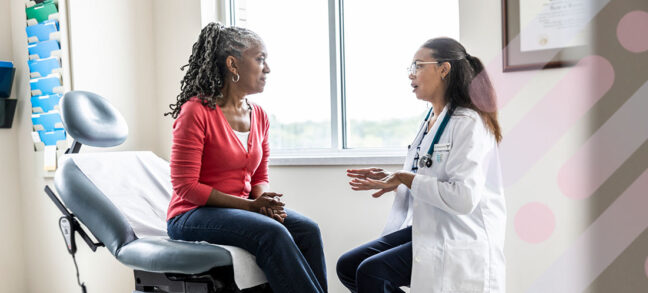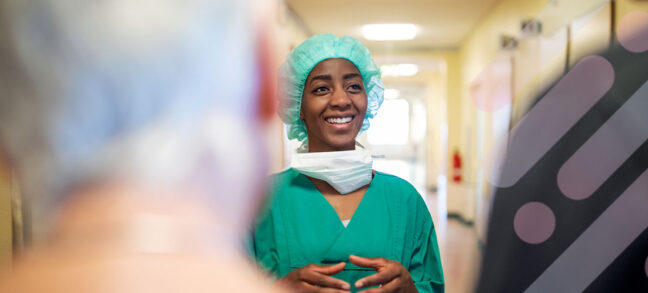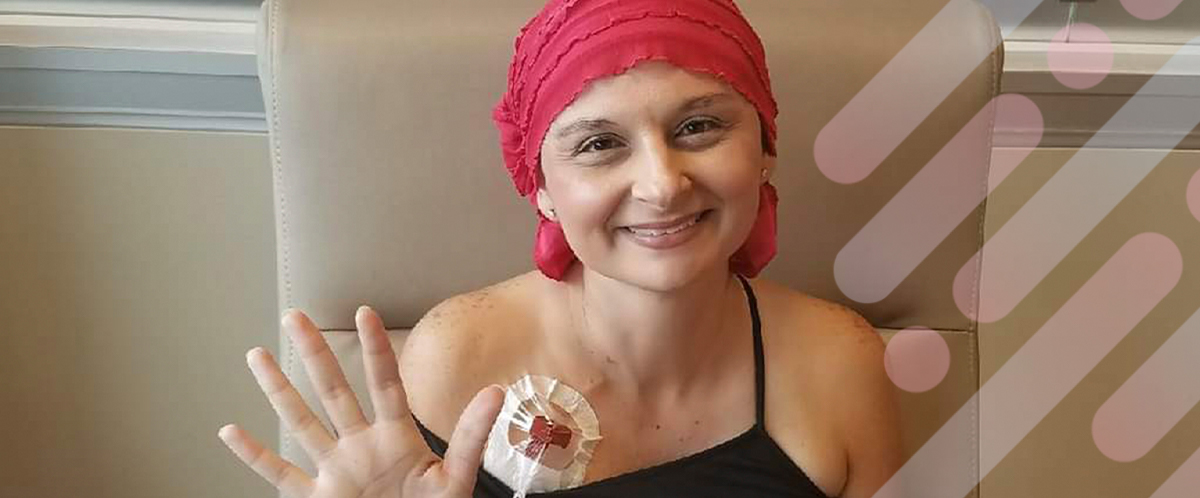Self-exam leads to discovery
Toni is a first-grade teacher and mother of three living in Louisiana. She is also a breast cancer survivor.
Toni was diagnosed with stage 2 invasive ductal carcinoma in 2017, at the age of 38. She had performed a self-breast check in the shower and identified a lump in her left breast, which prompted her to visit her doctor. Toni learned that the cancer had already spread to her lymph nodes.
“At the time, I decided to have a lumpectomy with chemotherapy and radiation versus having a total mastectomy because I had friends who told me … about the numbness that they experienced, and how awkward it felt and how weird it was. And at the age of 38, I just felt like I just wasn’t sure that that was something I wanted to do,” said Toni in an interview with CBS 4WWL.
After her treatment, Toni was required to undergo continuous monitoring, which meant a lot of self-exams and mammograms every three to six months, and due to her dense breast tissue with calcifications—constant biopsies. “I felt like cancer was controlling me, and I wanted to gain control back,” Toni said.
Taking back control
“I was living in fear and wanted my life back from cancer, so I considered a double mastectomy. I was reluctant, though, because a friend had been through that surgery and experienced permanent numbness in her chest that was just terrible for her,” said Toni.
Toni’s biggest piece of advice to others facing a treatment choice after their cancer diagnosis? “Research and do NOT make any rash decisions. When diagnosed, your first thought is, ‘How do I get rid of it and survive?’ Take the time you are comfortable with to make life-changing decisions. Research your doctor, surgeons and any procedures that are out there. I would never have known about Resensation if I had chosen a different surgeon. If I had known before radiation, I would have chosen the mastectomy with Resensation first.”
Armed with new knowledge about the Resensation procedure, Toni opted for a double mastectomy.
Resensation, and a return to normalcy
“I remember when I first got home from having my mastectomy and I was in the shower, and I couldn’t feel the hot water. And I thought to myself, ‘Wow, this is how my friends feel. They can’t feel the hot water or they can’t feel … when someone gives them a hug.’”
Around four months after her procedure, Toni’s sense of touch slowly returned. And so did her sense of normalcy.
“I can feel my kids hug me, I can feel my students when they hug me. I can feel the hot water in the shower. These are things that we all take for granted on a regular basis, but for a woman who has undergone a mastectomy, these are things that she’ll never feel again without this procedure,” Toni said.
“Resensation has allowed me to have a double mastectomy and feel like I have not lost anything. My breasts look and feel like they did before surgery. I feel like my old self.”
If you’re considering a mastectomy, get in touch with a Resensation surgeon to learn more.
Some links will navigate you away from the Resensation® website. Links outside of resensation.com are provided as a resource to the viewer, and do not constitute an endorsement or recommendation by Axogen. Axogen accepts no responsibility for or control over the content of the linked sites.
*The level of sensation restored following use of the Resensation technique may vary and cannot be guaranteed, due to unique anatomy and other considerations. Please consult a surgeon for more detailed information.
Each patient outcome is dependent upon the nature and extent of nerve loss or damage, the timing between nerve loss and repair, and the natural course of the patient’s recovery. These testimonials reflect the experience of the particular individual and may not represent typical results.
Resensation Blog

How does mastectomy impact the nerves in the breast?
One sometimes overlooked aspect of mastectomy is its impact on nerves. Read what happens to nerves during mastectomy and explore…
Read More
What happens during implant breast reconstruction with Resensation®?
By repairing sensory nerves, Resensation® enables you to potentially regain sensation to your chest. Read how this procedure works during…
Read More
how resensation® helped Leanna feel secure in her family’s future
With Resensation®, Leanna can be there to watch her kids grow up—without losing the feeling of being whole.
Read More
sensory retraining: what is it, and how can it help me after resensation®?
Sensory retraining is a series of exercises designed to help you reconnect with your body after breast reconstruction with Resensation®.
Read More